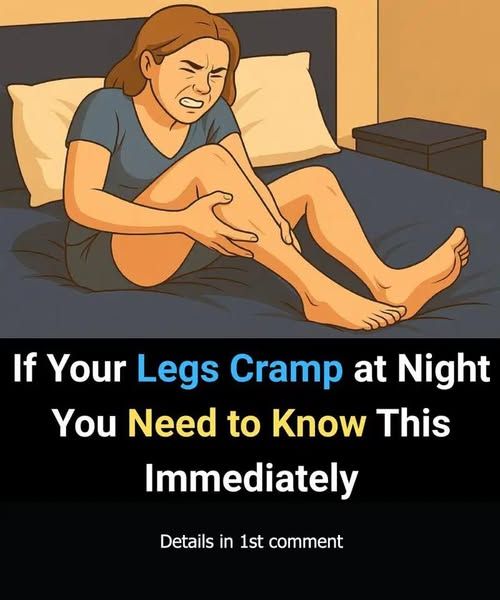5. Wear Proper Footwear
Supportive shoes, especially during the day, can reduce leg strain and prevent muscle fatigue that leads to nighttime cramps.
6. Keep Your Bedding Loose
Tight or heavy blankets can force your toes downward, shortening calf muscles and increasing cramping risk.
How to Relieve a Leg Cramp When It Happens
If you wake up with a leg cramp, try the following to ease the pain and relax the muscle:
- Gently stretch the affected muscle. For a calf cramp, flex your foot upward toward your knee.
- Massage the area with firm pressure using your hands.
- Apply warmth using a heating pad, warm towel, or soak in warm water to loosen the muscle.
- Use ice if the muscle feels sore afterward.
- Get up and walk around for a few minutes to increase blood flow.
When to See a Doctor About Nighttime Leg Cramps
Occasional cramps are typically not a cause for concern. However, you should talk to your doctor if:
- Cramps occur frequently (multiple times per week)
- The pain is severe or long-lasting
- They significantly disrupt your sleep or daily life
- The cramps are accompanied by muscle weakness, swelling, or numbness
- You’ve recently started a new medication that could be triggering them
Your healthcare provider can help rule out underlying issues and may recommend tests, supplements, or a change in medication if needed.
You Don’t Have to Suffer Through It
Nighttime leg cramps can be painful, frustrating, and disruptive. But understanding their causes — and taking a few simple, natural steps to prevent them — can make a world of difference.
Whether it’s staying hydrated, getting your nutrients, or adding a light stretch before bed, small daily habits can go a long way in reducing how often cramps strike. And if they persist, know that help is available. There’s no need to just live with it.
